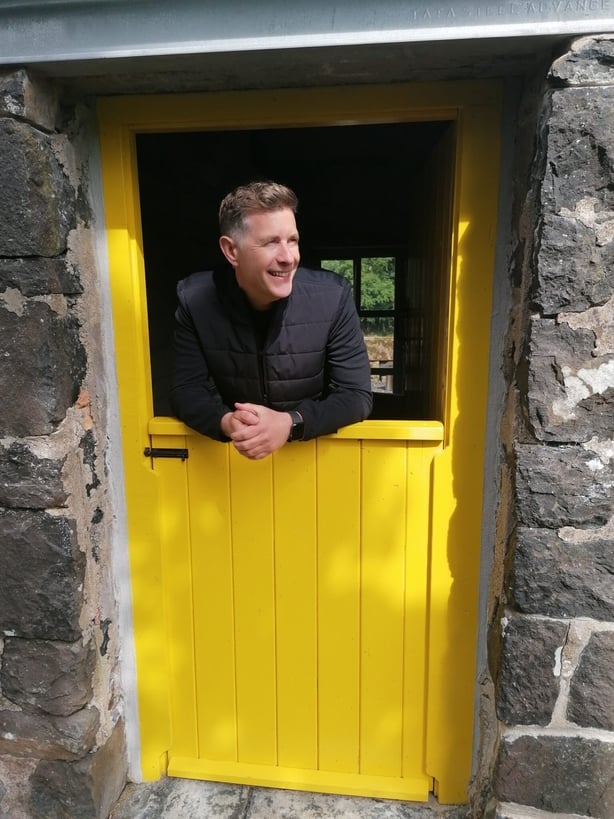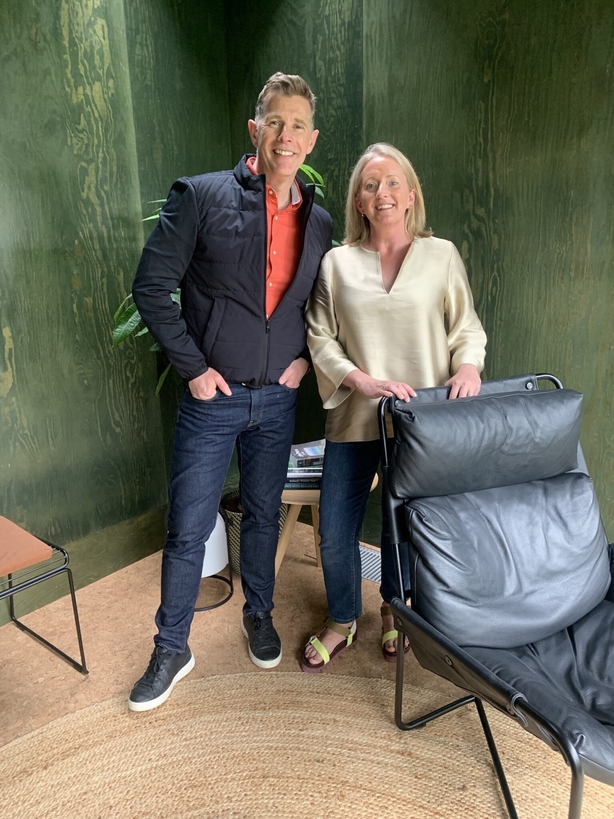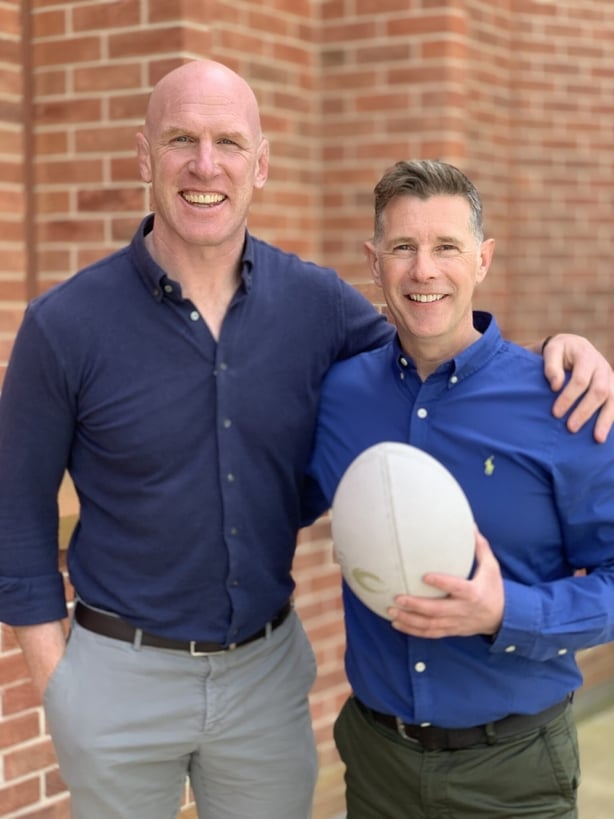Halfway into a chat with Dermot Bannon about his new series, Dermot Bannon's Super Spaces, he hits on what sounds like a core memory for how he's come to think of design.
Talking about meeting clients, who only imagine entertaining guests when they have "the proper space", he recalls a much more average kind of entertaining.
"I remember as a kid, sharing a chair with my brother and my sister; the three of us, because we were so small, around the one chair. And we all gathered around what was a really regular kitchen table in my granny's house. Sometimes it could be 20 of us around that table, all shovelled up, plates balancing on laps and all that."

The beauty, he says, was in being together, regardless of whether the room could fit an extra long dining table. "We've got caught up in trying to make everything too perfect, and we put parts of our lives on hold because we haven't got that space or it's not a perfect space."
In his new series, which starts on 4 September on RTÉ One, Bannon goes in hunt for the perfect spaces we largely take for granted: coffee trucks, outdoor squares, as well as the odd mindfully designed stunner of a home. He wouldn't be Dermot Bannon if he didn't serve up some inspiration, now, would he?
Speaking over the phone ahead of the series, Bannon calls the show a "passion project" that "took a bit of getting it over the line".
"People just associate me with houses and buildings, and that's really easy. 'Dermot Bannon, he goes into a house, his jaw drops, he goes, wow, done.' Design and buildings are far more than that. They are towns and cities and villages, and public spaces and coffee trucks and swimming baths and rugby pitches. And design is not about money."
After years of Room to Improve, Bannon is keenly aware of his image to viewers: "I think I have been pigeonholed a little bit in the last couple of years, especially doing things like incredible homes, which I still think there's a place for it because we still all want our escapism."

That said, he knows that it can send a message that "design is elitist, and design is only for people with loads of money to spend on it".
"And I really wanted to make a series that wasn't, that just shows design is everywhere, and it's in the cool little things. And it can really, really impact a town, a village, a person, a group, a community, a gathering, just everything."
For example, in the new series Bannon visits a local coffee truck he's been visiting since it opened, which he sees as having accidentally created "the perfect Italian square".
"By the way they lift it in the coffee truck, and they created a route in front of it, the coffee truck as the focal point, and then everybody sat you around it in the same way you would in Piazza San Marco or any of these places in Venice.
"That bit of design cost nothing, because if they turned that building, that little coffee truck, to 90 degrees, I don't know, I think they might even be closed now because there wouldn't have been a gathering space."
These "outdoor rooms", as Bannon calls them, have become, in many ways, the lifeblood of towns and cities in recent years. However, he adds, "I do feel that we are neglecting our cities".

"Dublin is a beautiful city. We have some amazing squares. We've got some amazing Georgian squares, like Mountjoy Square, and things like that, Parnell Square. Some of them are fine, and they've been well looked after. Others are being left to to dereliction. And dereliction can sometimes be like a cancer. It'll spread."
He recalls growing up in a version of Dublin that felt like it was "hollowed out": "Nobody lived in the city. Very few people lived in the city. Everybody lived out in suburbs. And then in the 1990s, there was this explosion of apartments, people moving back into the city. With that came an amazing nightlife in Dublin during the '90s. Galleries. The restaurant scene started."
The focus, he says, needs to be on supporting the smaller, independent businesses that bring people together. He points to the summer of outdoor gigs and to Drury Street and the hub of activity it's become in recent months: "There is an absolute craving for collective living and meeting again and people being together and experiencing things together."
Watch Dermot Bannon's Super Spaces on Wednesday 4 and 11 September at 9:35pm on RTÉ One.


